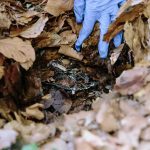Millions of toxic plastic beads spread along sussex coast following major industrial spill

A catastrophic environmental disaster is unfolding along England’s Sussex coast after millions of toxic plastic beads escaped from a Southern Water sewage treatment facility and began washing ashore at the popular Camber Sands beach. The crisis has sparked widespread concern among residents, environmental advocates, and local businesses who fear lasting damage to the region’s ecology and tourism industry.
The environmental emergency began approximately two weeks ago when a containment screen at the Eastbourne sewage works failed, releasing countless tiny plastic bio-beads into the sea. These industrial beads, used in wastewater treatment processes, are toxic to marine life and pose serious environmental risks. The contamination first became visible last Thursday when the beads started appearing on Camber Sands beach, with the situation rapidly deteriorating throughout the weekend as ocean currents spread the pollution along the coastline.
At an emotionally charged public meeting on Thursday, local residents and officials confronted the full scope of this environmental disaster. Community members described witnessing the devastating impact firsthand as beaches became carpeted with the plastic debris. The spill threatens not only the area’s delicate marine ecosystem and wildlife but also the tourism-dependent local economy that relies on pristine beaches to attract visitors.
The incident highlights ongoing concerns about industrial waste management and the vulnerability of coastal environments to pollution events. As cleanup efforts continue, authorities are working to assess the full extent of the contamination and prevent further spread of the toxic beads along the Sussex shoreline.
This article was written by the EnviroLink Editors as a summary of an article from: The Guardian







